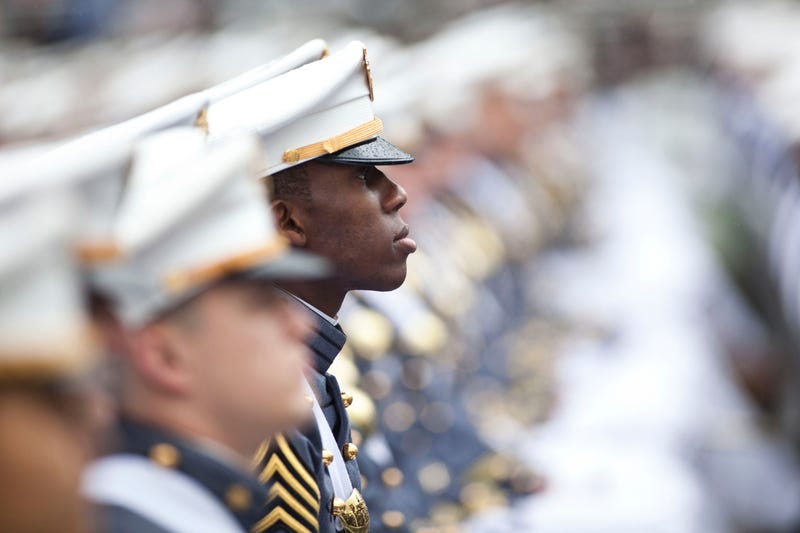
After West Point Academy alumni went viral for their reports of racial harassment and discrimination, the academy launched a review into racial issues among its cadets and leadership.
The alumi testimonials were included in a proposal, titled "An Anti-Racist West Point," first reported by Business Insider.
Days after the proposal was published, West Point announced that its Inspector General would launch an investigation into "all matters involving race" at the academy -- although West Point spokesperson Lt. Col. Christopher Ophardt declined to directly tie the investigation to the alumni proposal.
“We take seriously all forms of racial inequality that marginalize or devalue members of our team," Ophardt said in an emailed statement. "West Point does not accept, condone or promote racism. The West Point Inspector General has begun a comprehensive review of all matters involving race at the Academy. We will carefully consider the results of this review and deliberately address any findings.”
The nine alumni -- which include a Rhodes Scholar, valedictorians and a class president -- reported facing racial slurs and harassment during their time as cadets.
One remembered a noose being left on his Black roommate's desk.
One was called the n-word during freshman year.
One was told he would likely rob another cadet because he was Black.
In multiple instances, reports of racial harassment went unreprimanded -- in one case, the cadet himself was reprimanded as leadership assumed he was lying.
Class of 2018 alumna 1st Lt. Simone Askew was the academy's first Black female First Captain -- a leadership role overseeing 4,000 cadets. Shortly after taking on the position, she found a note slipped under her barracks door with "a picture of me holding a rifle, photoshopped with a monkey's face."
The 40-page proposal shares these stories, and more, in addition to asking leadership at the academy to make changes and start afresh with an "anti-racist West Point." The policy's proposed changes include changing the name of Lee Barracks, removing a monument honoring Confederate officers, and investigating the integrity of the academy's donor process.
Army removes photos from promotion boards in effort to eliminate bias
As part of the project, Army leadership will travel to installations to meet with soldiers for "very hard, uncomfortable conversations" -- the same wording the secretary used when describing the repercussions in store for Guard troops who participated in protests while on duty at the beginning of the month.
The project also includes a 60-day review of UCMJ racial biases within the Army and removing Department of the Army photos from promotion boards come August for commissioned officers, warrant officers and noncommissioned officers.
"This will be an enduring effort for the Army ... we will continue to improve ourselves," Secretary of the Army Ryan McCarthy said in announcing Project Inclusion.
--
